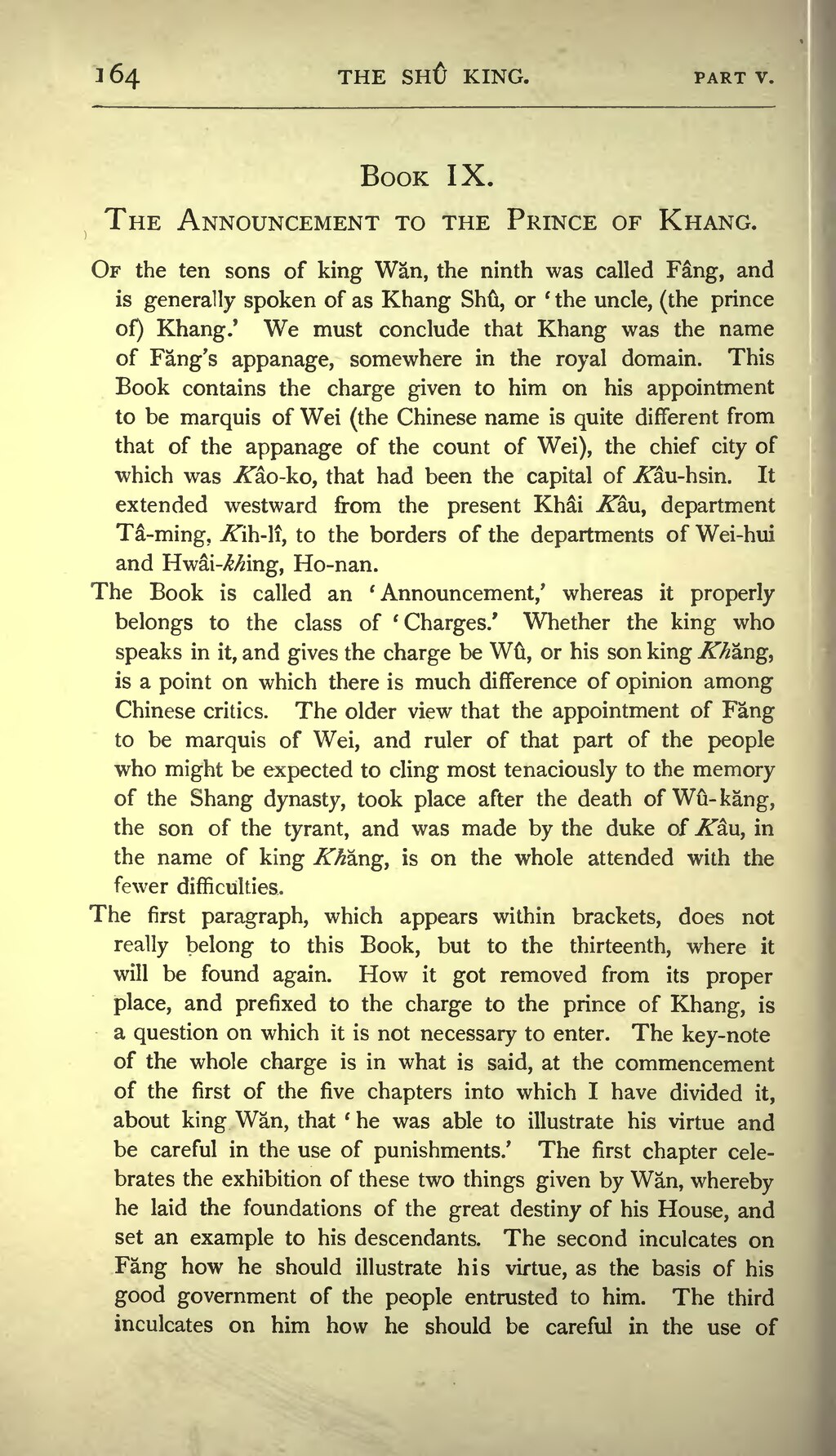Book IX.
The Announcement to the Prince of Khang.
Of the ten sons of king Wăn, the ninth was called Făng, and is generally spoken of as Khang Shû, or 'the uncle, (the prince of) Khang.' We must conclude that Khang was the name of Făng's appanage, somewhere in the royal domain. This Book contains the charge given to him on his appointment to be marquis of Wei (the Chinese name is quite different from that of the appanage of the count of Wei), the chief city of which was Kâo-ko, that had been the capital of Kâu-hsin. It extended westward from the present Khai Kâu, department Tâ-ming, Kih-lî, to the borders of the departments of Wei-hui and Hwâi-khing, Ho-nan.
The Book is called an 'Announcement,' whereas it properly belongs to the class of 'Charges.' Whether the king who speaks in it, and gives the charge be Wû, or his son king Khăng, is a point on which there is much difference of opinion among Chinese critics. The older view that the appointment of Făng to be marquis of Wei, and ruler of that part of the people who might be expected to cling most tenaciously to the memory of the Shang dynasty, took place after the death of Wû-kăng, the son of the tyrant, and was made by the duke of Kâu, in the name of king Khăng, is on the whole attended with the fewer difficulties.
The first paragraph, which appears within brackets, does not really belong to this Book, but to the thirteenth, where it will be found again. How it got removed from its proper place, and prefixed to the charge to the prince of Khang, is a question on which it is not necessary to enter. The key-note of the whole charge is in what is said, at the commencement of the first of the five chapters into which I have divided it, about king Wăn, that 'he was able to illustrate his virtue and be careful in the use of punishments.' The first chapter celebrates the exhibition of these two things given by Wăn, whereby he laid the foundations of the great destiny of his House, and set an example to his descendants. The second inculcates on Făng how he should illustrate his virtue, as the basis of his good government of the people entrusted to him. The third inculcates on him how he should be careful in the use of
